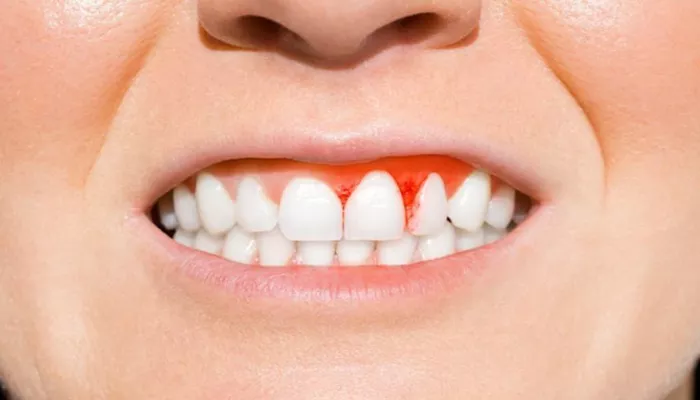Periodontal disease, often referred to as gum disease, is a common condition that affects many adults. It begins with inflammation of the gums (gingivitis) and can progress to more severe forms, such as periodontitis, which can lead to tooth loss and other serious health issues. Recent studies have revealed a concerning link between periodontal disease and premature birth. Understanding this connection is crucial for expecting mothers and healthcare providers. This article will explore how periodontal disease can lead to premature birth, the underlying mechanisms, and the importance of oral health during pregnancy.
Understanding Periodontal Disease
What Is Periodontal Disease?
Periodontal disease is an inflammatory condition that affects the tissues surrounding the teeth. It starts with gingivitis, where the gums become swollen, red, and may bleed. If not treated, gingivitis can progress to periodontitis, which involves the loss of bone and tissue that support the teeth.
Causes of Periodontal Disease
The primary cause of periodontal disease is the accumulation of plaque, a sticky film of bacteria that forms on teeth. Other contributing factors include:
Poor Oral Hygiene: Inadequate brushing and flossing can lead to plaque buildup.
Smoking: Tobacco use is a significant risk factor for gum disease.
Hormonal Changes: Hormonal fluctuations during puberty, menstruation, and pregnancy can affect gum health.
Genetic Factors: Some individuals may be genetically predisposed to gum disease.
Chronic Conditions: Conditions such as diabetes can increase the risk of periodontal disease.
Symptoms of Periodontal Disease
Common symptoms of periodontal disease include:
- Red, swollen gums
- Gums that bleed when brushing or flossing
- Persistent bad breath
- Loose teeth or shifting teeth
- Pain when chewing
The Link Between Periodontal Disease and Premature Birth
What Is Premature Birth?
Premature birth is defined as the birth of a baby before 37 weeks of pregnancy have been completed. A full-term pregnancy typically lasts about 40 weeks. Premature birth can lead to various health complications for the baby, including respiratory issues, feeding difficulties, and developmental delays.
How Periodontal Disease Contributes to Premature Birth
Research has shown that periodontal disease can increase the risk of premature birth. The connection between the two conditions is complex and involves several mechanisms:
1. Inflammatory Response
Periodontal disease is characterized by chronic inflammation. This inflammation can have systemic effects on the body, including:
Release of Cytokines: Inflammatory cytokines are proteins released by the immune system in response to infection. In periodontal disease, these cytokines can enter the bloodstream and affect other parts of the body, including the uterus.
Impact on Pregnancy: Elevated levels of inflammatory cytokines can lead to complications in pregnancy, including premature labor.
2. Bacterial Infection
The bacteria present in periodontal disease can also play a role in premature birth:
Bacteria in the Bloodstream: Bacteria from the mouth can enter the bloodstream and reach the placenta. This can trigger an inflammatory response in the uterus.
Infection in the Placenta: If bacteria reach the placenta, they can cause infections that may lead to premature rupture of membranes and premature labor.
3. Hormonal Changes
Pregnancy causes significant hormonal changes in a woman’s body. These changes can affect gum health and increase the risk of periodontal disease:
Increased Sensitivity: Hormonal fluctuations can make gums more sensitive and susceptible to inflammation.
Exacerbation of Existing Conditions: If a woman has underlying periodontal disease, pregnancy can worsen the condition, increasing the risk of complications.
4. Stress Response
Pregnancy can be a stressful time for many women. Stress can influence the body’s inflammatory response:
Chronic Stress: High levels of stress can lead to an increase in inflammation throughout the body, including the gums.
Impact on Immune System: Chronic stress can weaken the immune system, making it harder for the body to fight off infections, including those related to periodontal disease.
The Importance of Oral Health During Pregnancy
Given the potential risks associated with periodontal disease, maintaining good oral health during pregnancy is essential. Here are some key points for expectant mothers:
1. Regular Dental Check-Ups
Pregnant women should schedule regular dental visits. These visits are crucial for:
Early Detection: Dentists can identify early signs of periodontal disease and provide treatment before it progresses.
Professional Cleanings: Professional cleanings can remove plaque and tartar, reducing the risk of gum disease.
2. Good Oral Hygiene Practices
Maintaining good oral hygiene is vital for preventing periodontal disease:
Brush Twice Daily: Use fluoride toothpaste and a soft-bristled toothbrush to clean teeth effectively.
Floss Daily: Flossing removes plaque and food particles from between teeth and below the gumline.
Use Antimicrobial Mouthwash: An antimicrobial mouthwash can help reduce bacteria in the mouth.
3. Healthy Diet
A balanced diet can support oral health and overall well-being during pregnancy:
Nutrient-Rich Foods: Consume plenty of fruits, vegetables, whole grains, and lean proteins to support both maternal and fetal health.
Limit Sugary Foods: Reducing sugar intake can help prevent plaque buildup and reduce the risk of cavities and gum disease.
4. Manage Existing Health Conditions
Women with chronic conditions, such as diabetes, should work closely with their healthcare providers to manage these conditions effectively. Proper management can help reduce the risk of periodontal disease and its complications.
Conclusion
The link between periodontal disease and premature birth is an important concern for expectant mothers. Chronic inflammation, bacterial infections, hormonal changes, and stress can all contribute to the risk of premature birth in women with periodontal disease. Therefore, maintaining good oral health during pregnancy is crucial. Regular dental check-ups, good oral hygiene practices, a healthy diet, and effective management of existing health conditions can help reduce the risk of periodontal disease and its associated complications.
If you are pregnant or planning to become pregnant, it is essential to prioritize your oral health. Consult with your dentist and healthcare provider to develop a comprehensive plan that includes regular dental care and preventive measures. By taking proactive steps, you can help ensure a healthier pregnancy and a better outcome for both you and your baby.
Related topics:

